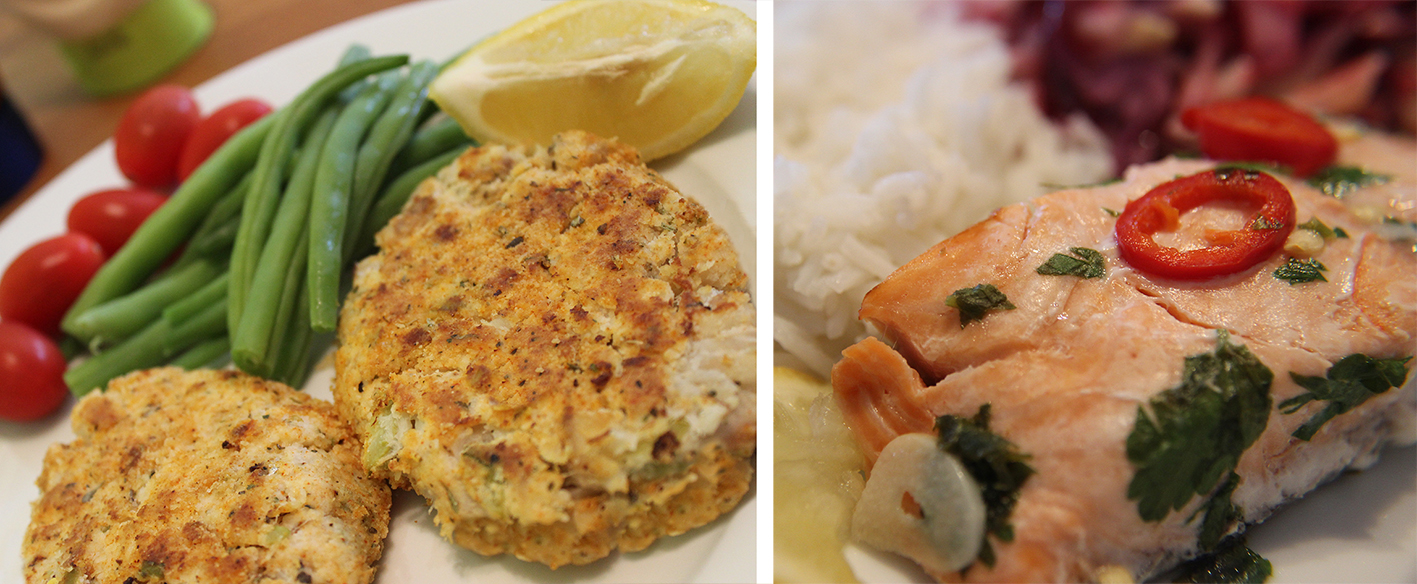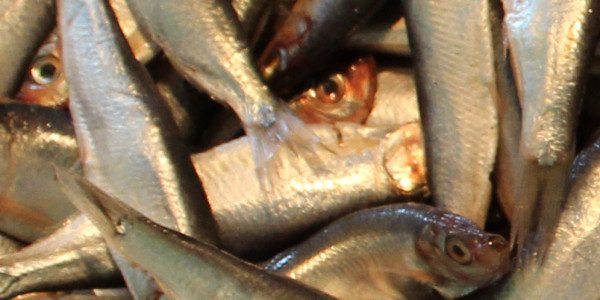 Fish is high in protein and oily fish provides us with a great source of beneficial fatty acids (DHA and EPA). Eating 2-3 servings per week provides us with sufficient fatty acids for our bodies’ needs.
Fish is high in protein and oily fish provides us with a great source of beneficial fatty acids (DHA and EPA). Eating 2-3 servings per week provides us with sufficient fatty acids for our bodies’ needs.
However there are some important factors to consider before choosing which fish to eat, including the hierarchy of the fish within the food chain, the
origin of the fish, and how the fish has been prepared.
Food chain:
Predatory fish, such as tuna, swordfish and shark generally contain the highest amounts of mercury. From a health perspective, it’s advisable to limit our consumption of these types of fish. Non-predatory fish such as salmon, sardines, and shrimp contain much lower levels of mercury.
Origin:
Farmed seafood usually contains the most antibiotics and neurotoxicants. Farmed fish are generally exposed to chemicals, and are often raised in cramped disease-ridden conditions.
Where possible, source wild fish rather than farmed. If the fish you buy isn’t labelled ‘wild’ then you can bet it’s been farmed. Avoid really cheap fish and seafood – chances are it’s poor quality.
Preparation:
Eating too much smoked fish (as well as smoked meats) is known to be linked to stomach and colon cancer, due to the increased levels of nitrates and nitrites.
Smoked fish can tend to have a high salt content too, due to the way it is preserved.
It can also contain a high level of bacteria and so it is not recommended for anyone with a weakened immune system. Pregnant women should avoid smoked fish completely. If you want to consume smoked fish, it is best to enjoy it in moderation and if possible, find out as much as you can about the origin and preparation methods used.
Sustainability:
One final thing to consider is the sustainability of marine life – an area of increasing concern around the world. Our seas are under huge pressure from over-fishing and
destructive fishing methods.
For many populations, especially those in developing countries, fish is a vital source of good nutrition. The devastating effects of the collapse of the ocean ecosystem would be felt around the world.
It is estimated that around 85% of the world’s fisheries are fished at or beyond their maximum sustainable limit. Some species of fish, such as Atlantic cod, monkfish, bluefin tuna, plaice, marlin, and Atlantic salmon are now seriously under threat.
Organisations such as the Marine Stewardship Council are working globally to put an end to irresponsible and harmful fishing practises.
The Marine Stewardship Council, for example, certifies fisheries around the world that ensure only sustainable fishing practices are used.
Do your bit, and look out for eco labels when buying fish to ensure that it’s certified sustainable.
Avoid buying any fish which has been recognised as under threat.
Visit www.greenpeace.org.uk for more information on sustainable seafood.
